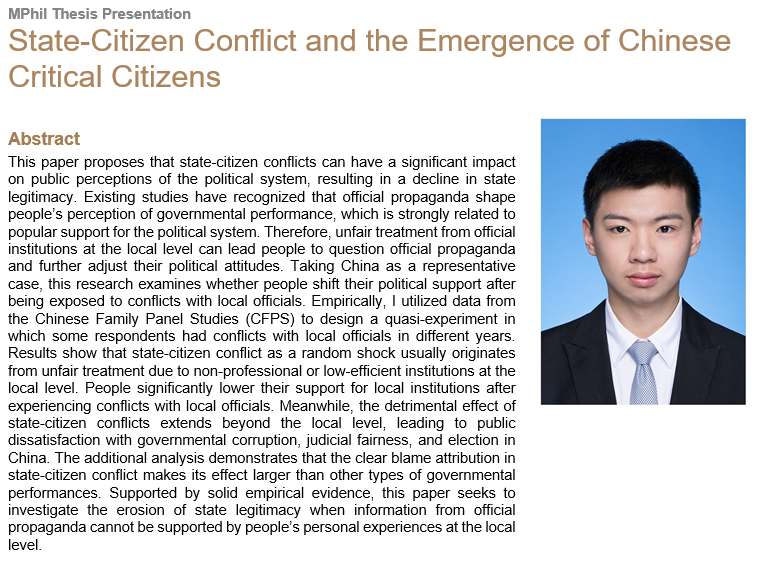Abstract
This paper proposes that state-citizen conflicts can have a significant impact on public perceptions of the political system, resulting in a decline in state legitimacy. Existing studies have recognized that official propaganda shape people’s perception of governmental performance, which is strongly related to popular support for the political system. Therefore, unfair treatment from official institutions at the local level can lead people to question official propaganda and further adjust their political attitudes. Taking China as a representative case, this research examines whether people shift their political support after being exposed to conflicts with local officials. Empirically, I utilized data from the Chinese Family Panel Studies (CFPS) to design a quasi-experiment in which some respondents had conflicts with local officials in different years. Results show that state-citizen conflict as a random shock usually originates from unfair treatment due to non-professional or low-efficient institutions at the local level. People significantly lower their support for local institutions after experiencing conflicts with local officials. Meanwhile, the detrimental effect of state-citizen conflicts extends beyond the local level, leading to public dissatisfaction with governmental corruption, judicial fairness, and election in China. The additional analysis demonstrates that the clear blame attribution in state-citizen conflict makes its effect larger than other types of governmental performances. Supported by solid empirical evidence, this paper seeks to investigate the erosion of state legitimacy when information from official propaganda cannot be supported by people’s personal experiences at the local level.

